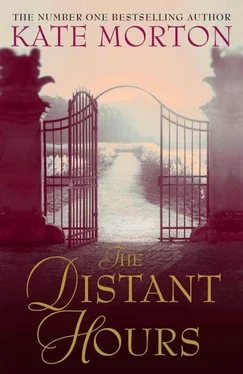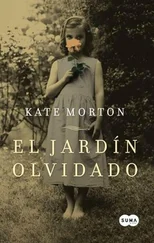‘It did?’
‘You said that you were going to be seeing Raymond Blythe’s notebooks and it occurred to me that you’d probably have a very good idea by now of what his handwriting looks like.’ She drew breath and then said, all in a rush, ‘I wondered, that is, I hoped…’
‘That I could take a look and let you know.’
‘Exactly.’
‘Sure, I guess-’
‘Wonderful!’ She clapped her hands together lightly beneath her chin as I slid the sheet of paper from within its envelope.
I knew at once that I was going to disappoint her, that the letter hadn’t been written by Raymond Blythe at all. Reading his notebook so closely, I’d become very familiar with his sloping handwriting, the long looping tails when he wrote G or J, the particular type of R he used to sign his name. No, this letter had been written by someone else.
Lucy, my love, my one, my only.
Have I ever told you how I fell in love? That it happened in the first instant that I saw you? Something in the way you stood, in the set of your shoulders, in the wisps of hair that had come loose to brush against your neck; I was yours.
I’ve thought of what you said when last we met. I’ve thought of little else. I wonder whether perhaps you might be right; that it is not a mere fancy. That we might just forget everything and everybody else and go far away together.
I didn’t read the rest. I skipped over the next few paragraphs and arrived at the single initial, just as Mrs Bird had said. But as I looked at it, variables shifted by degrees and a number of things slipped into alignment. I had seen this person’s handwriting before.
I knew who had written the letter and I knew who it was that Lucy Middleton had loved above all others. Mrs Bird had been right – it was a love that flew in the face of their society’s conventions – but it hadn’t been between Raymond and Lucy. It wasn’t an R at the end of those letters, it was a P, written in an old-fashioned hand so that a small tail emerged from the curve of the letter. Easy to confuse with an R, especially if that’s what one was looking for.
‘It’s lovely,’ I said, tripping over my words because I felt forlorn, suddenly, thinking of those two young women and the long lives they’d spent apart.
‘So sad, don’t you think?’ She sighed, tucking the letter back inside her pocket, then she looked at me hopefully: ‘Such a beautifully written letter.’
When I’d finally extricated myself from Mrs Bird, having been as non-committal as I could, I made a beeline for my room and collapsed sideways across the bed. I closed my eyes and tried to relax my mind, but it was no use. My thoughts remained tethered to the castle. I couldn’t stop thinking of Percy Blythe, who had loved so well and so long ago; who people thought of as stiff and cold; who had spent most of her life keeping a terrible secret to protect her little sister.
Percy had told me about Oliver Sykes and Thomas Cavill on condition that I did ‘the right thing’. She’d spoken a lot about people’s closing dates, but what I couldn’t work out was why she’d needed to tell me at all; what she wanted me to do with the information that she couldn’t do herself. I was too tired that afternoon. I needed a sleep and then I was looking forward to spending the evening with Mum. So I resolved to visit the castle the following morning, to see Percy Blythe one final time.
And in the End
Only I never got the chance. After dinner with Mum I fell asleep quickly and soundly but, just past midnight, I woke with a start. I lay for a moment in my bed at the farmhouse, wondering why I’d emerged from sleep, whether it was something I’d heard, some nocturnal sound that had since subsided, or whether I’d somehow dreamed myself awake. One thing I did know: the sudden wakefulness didn’t feel anywhere near as frightening as it had the previous night. I had no sense this time that there was anyone with me in the room, and I could hear nothing untoward. Yet that pull I’ve spoken of, the connection I felt towards the castle was tugging at me. I slid out of bed and went to the window, drew aside the curtains. And that’s when I saw it. Shock buckled my knees, and I was hot and cold at once. Where the dark castle should have sat, all was bright: orange flames licking at the low and heavy sky.
The fire at Milderhurst Castle burned most of the night. By the time I called the fire brigade they were already on their way, but there was little they could do. The castle might have been built of stone but there was so much wood within, all that oak panelling, the struts, the doors, the millions of sheets of paper. As Percy Blythe had warned, one spark and the whole lot went up like a tinderbox.
The old ladies inside never stood a chance. So said one of the firemen next morning, at the breakfast Mrs Bird supplied. They’d all three been sitting together, he said, in a room on the first floor. ‘It looked as if they’d been caught unawares while dozing by the fire.’
‘Is that what started it?’ asked Mrs Bird. ‘A spark from the fire – just like what happened to the twins’ mother.’ She shook her head, tutting at the tragic parallel.
‘It’s hard to say,’ said the fireman, before proceeding to say much more. ‘It could’ve been anything, really. A stray ember from the fireplace, a dropped cigarette, an electrical fault – the wiring in those places is older than me, most times.’
The police or the fire brigade, I’m not sure which, had put barriers around the outside of the smouldering castle, but I knew the garden pretty well by now and was able to climb up the back way. It was grisly, perhaps, but I needed to have a closer look. I’d known the Sisters Blythe only briefly, but had come to feel such strong possession of their stories, their world, that to wake and find it all turned into ash provoked in me a feeling of deep bereavement. It was the loss of the sisters, of course, and their castle, but it was something more, as well. I was overcome by a sense that I’d been left behind. That a door so recently opened to me had closed again, swiftly and completely, and I would never step through it again.
I stood for a time, taking in the black and hollowed shell, remembering my first visit, all those months before, the sense of anticipation as I’d made my way past the circular pool and towards the castle. Everything I’d learned since.
Seledreorig … The word came into my head like a whisper. Sadness for the lack of a hall.
A small castle stone lay loose on the ground by my feet, and it made me more melancholy still. It was just a bit of rock. The Blythes were no more and their distant hours were silent.
‘I can’t believe it’s gone.’
I turned to see a young man with dark hair standing beside me. ‘I know,’ I said. ‘Hundreds of years old and it was destroyed in hours.’
‘I heard on the radio this morning and I had to come and see it for myself. I was hoping to see you, too.’
Perhaps I looked surprised, for he held out a hand and said, ‘Adam Gilbert.’
That name should have meant something, and it did: an elderly chap in tweeds and an antique office chair. ‘Edie,’ I managed. ‘Edie Burchill.’
‘I thought as much. The very same Edie who stole my job.’
He was joking and I needed a witty rejoinder. I came up instead with muddle-headed gibberish: ‘Your knee… Your nurse… I thought -?’
‘All better now. Or very nearly.’ He indicated the walking stick in his other hand. ‘Would you believe a rock-climbing incident?’ A crooked smile. ‘No? Oh, all right. I tripped over a pile of books in the library and shattered my knee. These are the dangers of the writing life.’ He dipped his head towards the farmhouse. ‘Heading back?’
Читать дальше












